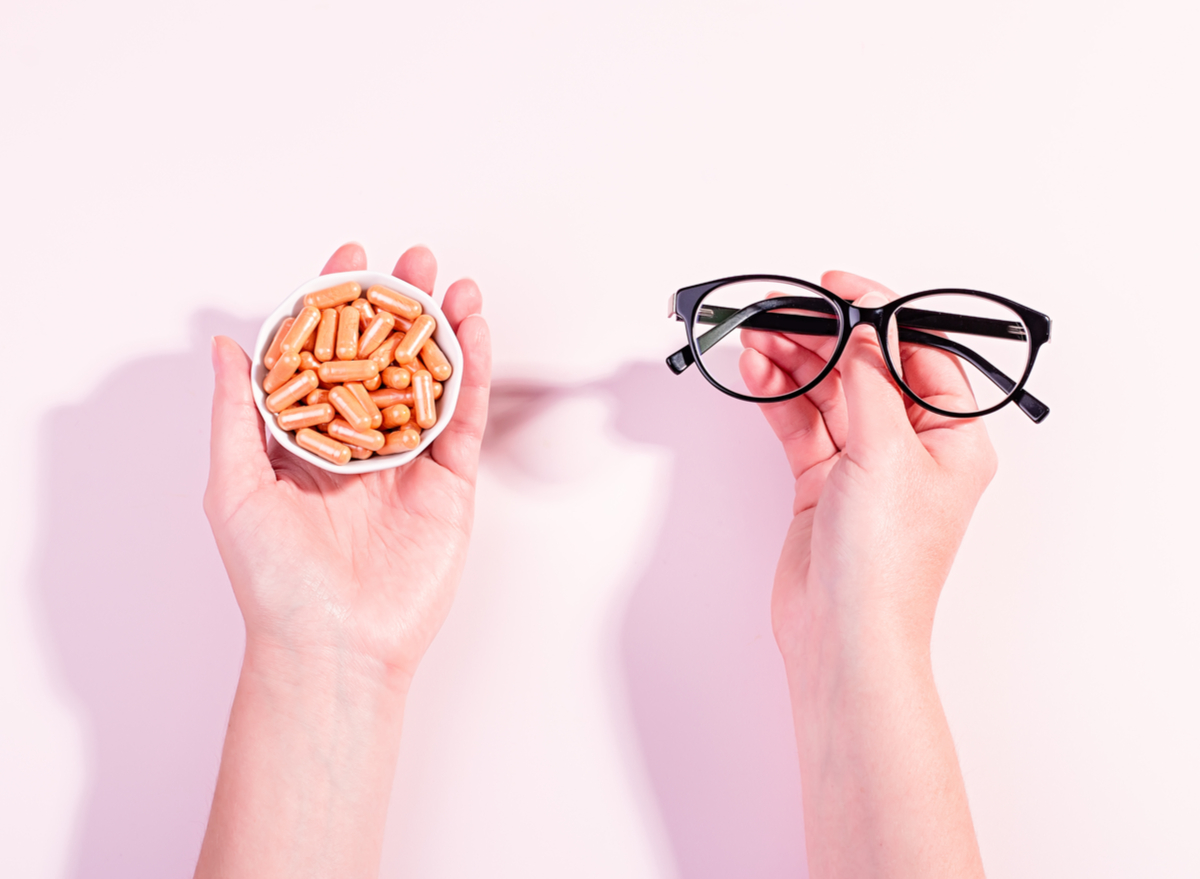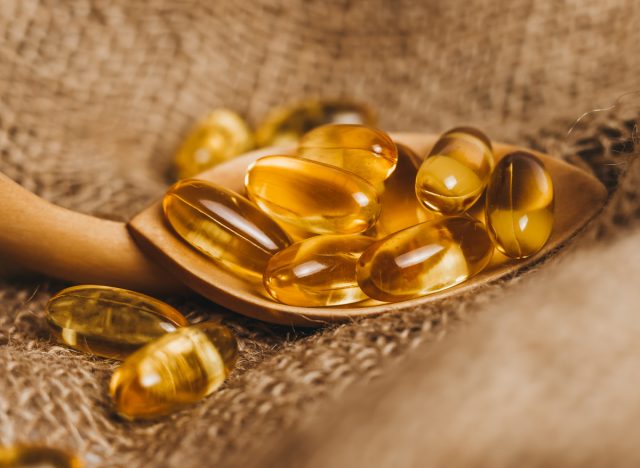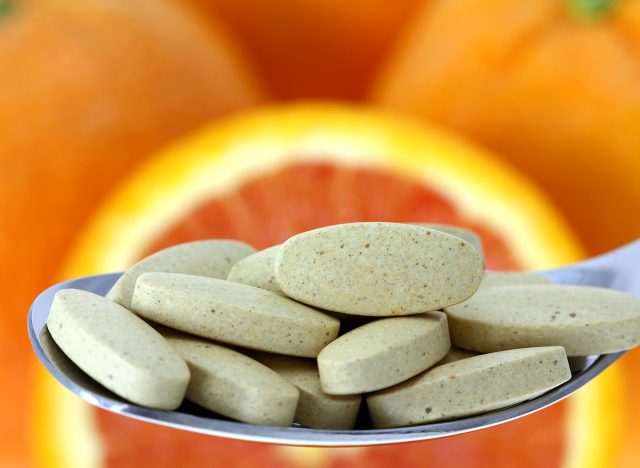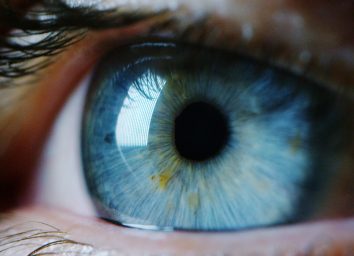The #1 Best Supplement to Keep Your Eyes Sharp, Say Dietitians

Your body already has to undergo many changes as it ages, and one of the most frustrating shifts can be what happens with your eye health. Over time, your vision may begin to weaken, you may experience dryer eyes, and your risk of eye-related diseases may increase as well.
Because of this, it's important to get plenty of healthy nutrients in your daily diet to take care of your eyes and keep them as sharp as possible. On top of eating the right foods, another way you can ensure you're getting these nutrients is by taking a supplement.
To learn more about the best supplements to keep your eyes sharp, we talked with Janet Coleman, RD with The Consumer Mag and Johna Burdeos, RD, and according to them, one of the best supplements for your eyes are omega-3 fatty acids!
How omega-3s can help

According to Coleman, one of the main ways omega-3 fatty acids can help your eye health is by "helping with dry eye syndrome and protecting against macular degeneration."
Dry eye syndrome can occur if your eyes aren't able to properly produce the amount of tears needed to lubricate your eyes. This is a common problem that occurs with aging and can be extremely uncomfortable to endure.
"Dryness tends to happen with screen time and aging," says Burdeos, "but omega-3s can reduce inflammation and can boost the oily layer of tears — which can help prevent the eyes from drying out too much."
While you can supplement omega-3s in pill or capsule form, you can also get plenty of these fatty acids through food as well. "Fatty fish like mackerel, anchovies, sardines, salmon, and herring, as well as flaxseeds, chia seeds, and walnuts are all rich in omega-3 fat," says Burdeos.
Other helpful supplements for your eyes

According to Coleman, there are other helpful supplements for your eyes. For example, zeaxanthin and lutein may be beneficial for your eye health.
"These two carotenoids were found to be very helpful in preventing macular degeneration and cataracts. These can be found in green leafy veggies like kale, spinach, and broccoli. If you're not getting 5-6 servings of these veggies a day, which is the recommended amount for your overall health, then consider taking a supplement containing these two carotenoids," says Coleman.
Along with these carotenoids, vitamin C may also be a helpful vitamin to supplement if you're not getting enough through the food you eat.
"Vitamin C is an antioxidant that helps protect your eyes from damage caused by free radicals that lead to cataracts and macular degeneration, and it can be found in foods like peppers, oranges, kiwi fruit, and strawberries," says Coleman.









